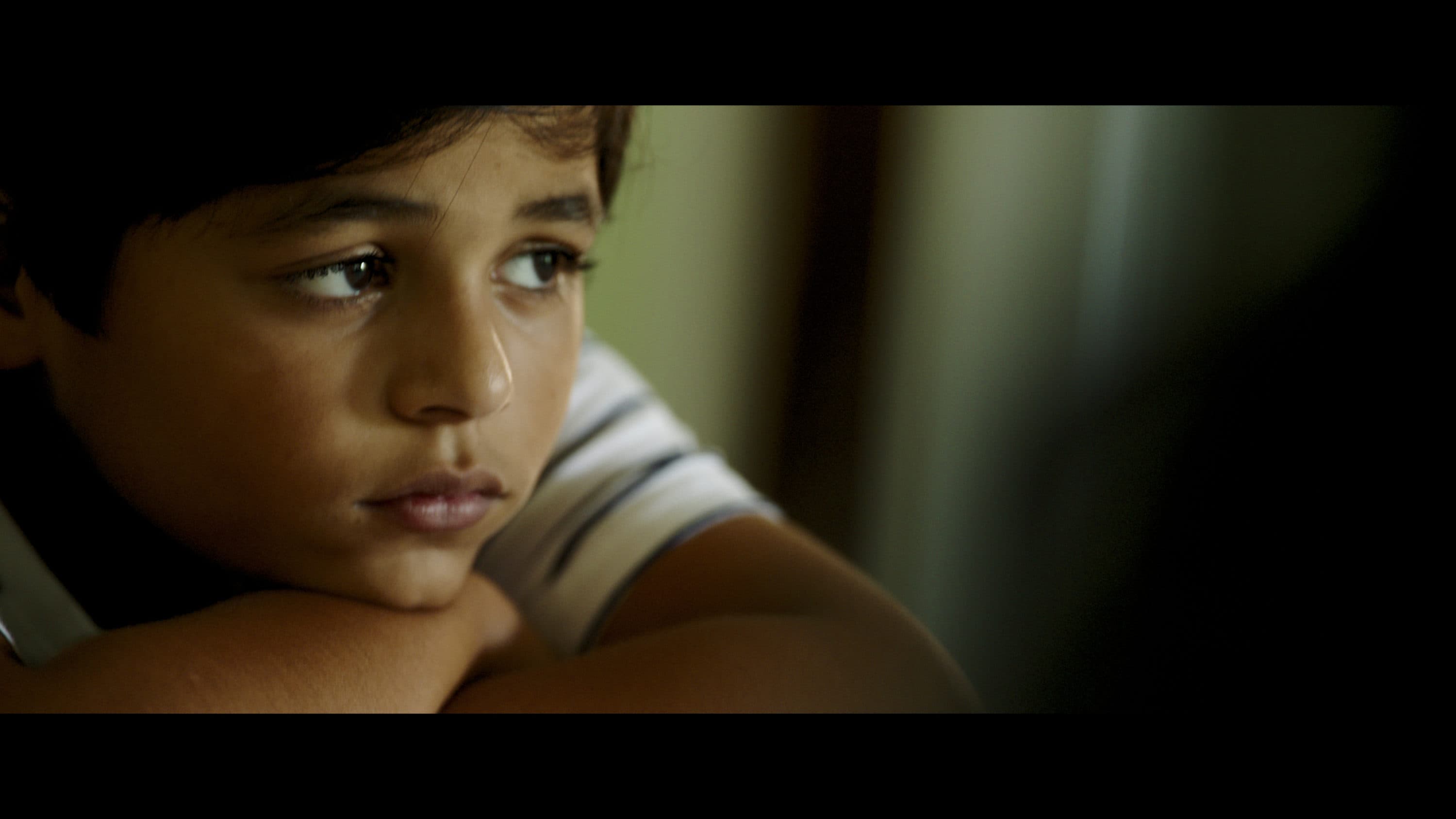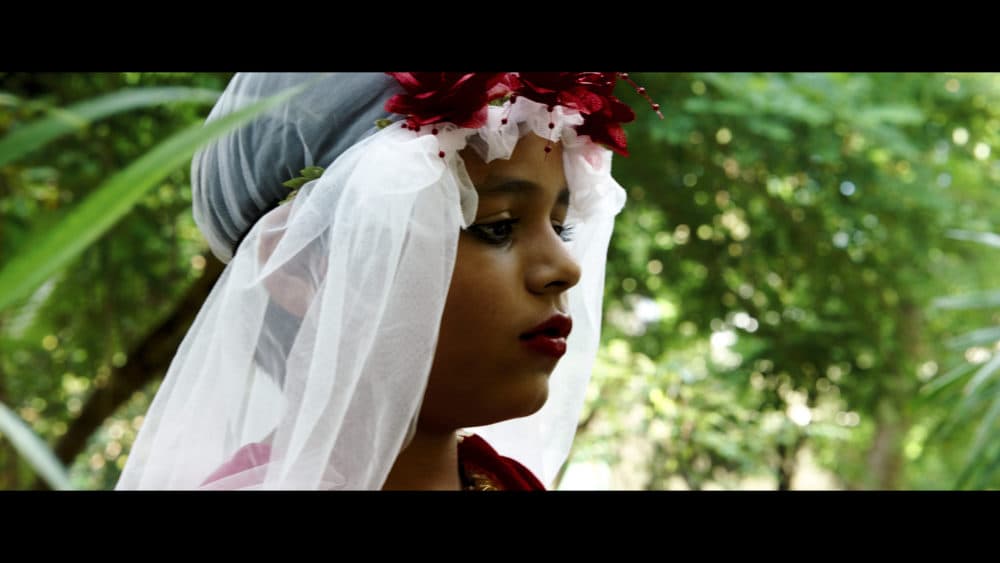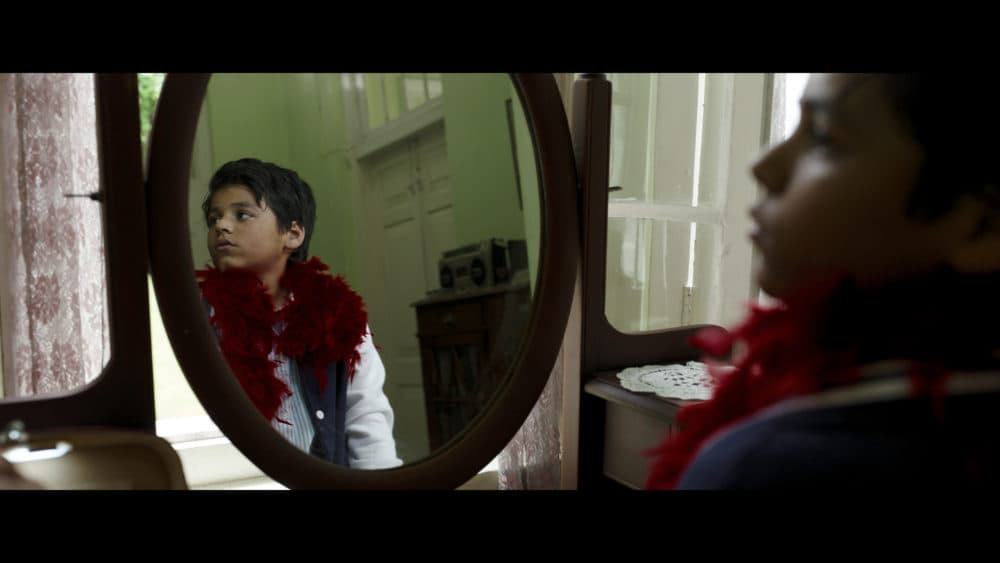Advertisement
Review
Film 'Funny Boy' Delves Into Complexities Of Being Queer And Tamil In Sri Lanka

When Deepa Mehta makes a new film, there’s bound to be tension. Not behind-the-scenes personality scuffle type of tension. More like receiving death threats kind of tension.
Productions by the seemingly fearless Indo-Canadian director have been shut down while shooting on location and viciously protested for “offensive” content. Mostly the affronts involve women characters from Mehta’s elemental trilogy (“Fire,” “Earth,” “Water”) who challenge norms and laws in search of freedom or love. Widows. Lesbians. Women who can no longer bear to follow someone else’s rules. That fact alone would be enough to label Mehta a firebrand in pretty much any country. But her movies, which often feature South Asian characters at home and abroad, are never that simple.
Her latest film, “Funny Boy,” is similarly layered. It’s about a young Tamil boy who realizes he’s gay amidst escalating political conflict in Sri Lanka, also where the film was shot. Ambitious and bold, “Funny Boy,” makes an apt contribution to Mehta’s noteworthy and controversial body of work. She’s one of Canada’s most important contemporary filmmakers and an international example of a woman who has sustained a decades-long career directing movies. Based on a beloved 1994 Canadian novel of the same name, “Funny Boy” is also the country’s Academy Award submission for Best International Feature Film.

At the beginning of “Funny Boy,” 8-year-old Arjie (a sweet-faced Arush Nand) thinks nothing of playacting the bride in an imaginary wedding. He only begins to grasp something’s “wrong” with his “girly” behavior after several stern warnings, mostly from his father. The boys at grammar school ridicule him, too, but for a different reason. He’s Tamil, not Sinhalese like them and the majority of Sri Lankans. Post-colonial resentments linger between the groups and filters down to the youth.
While permeating the lives of his family members in different ways, the ethnic divide catches up to Arjie at 17 (played by an endearing Brandon Ingram) when he cautiously falls for a Sinhalese boy in his high school literature class. Like so many people who feel alien for one reason or another, older Arjie can’t easily shake off his childhood moments of shame. Mehta effectively intercuts flashbacks at emotional touchpoints. When chastened as a teen at the dinner table, Arjie literally becomes a child again before the viewer’s eyes. She likewise flashes forward to moments of strength in a dazzling, unexpected gift that’s only fully comprehended by the movie’s end.
Arjie’s father plays a rigid role in his life, admonishing his son’s preference for playing dress-up over cricket, which culminates with a warning against Arjie becoming a “funny boy.” Arjie asks just what that means. The initial shorthand for “funny” (or gay) risks oversimplification into an increasingly familiar coming out story. Arjie likes heavy lipstick, red boas and has a sympathetic mother and Western-influenced auntie. But meeting Arjie before adolescence helps viewers imagine he might come out on any part of the LGBTQ+ spectrum. Regardless, same-sex acts in Sri Lanka are illegal, both in the ‘70s and ‘80s (when the movie is set) and now. What makes Arjie stand out — and what drew fans to Shyam Selvadurai’s novel — is threefold. Arjie is gay and Tamil and later in the story, becomes a Canadian refugee. A lot of distinct groups are counting on the book’s adaptation to look and sound and feel right.
After seeing the trailer, some members of the Tamil diaspora weren’t pleased. Criticism arose around Mehta’s casting of too few Tamil actors and for allowing “sloppy” Tamil accents, especially egregious since the film cites language use as one of the giveaways the Sinhalese used against Tamil people. An online petition that spells out further complaints has gathered nearly 3,000 signatures. While Mehta has defended her choices, some lines have been re-recorded in preparation for the Dec. 10 Netflix release.

I’ll confess to being outside this circle of knowledge upon first watch of this film. As an English speaker, I noticed the way in which characters broke between Tamil and English (especially when emotions run high) and the alarming sway of British and American pop culture icons. This context made me unexpectedly conscious of my white American teen years’ “greatest hits” packaged as an export. It made me want more for Arjie and his daring first love. For them to have their own South Asian gender-bending heroes to paste on their walls. (With its Canadian influence, at least Leonard Cohen gets a nod.)
Yet, that’s exactly what the book, and now this movie, delivers — star-crossed lover heroes for another generation, possibly another continent, away. Besides, and perhaps most remarkably, Arjie’s queerness is just one piece, or even the draw, into an ensemble story about how people hedge their choices in relation to forces outside of themselves. Whether how his auntie agrees to an arranged marriage, or how his mother’s attention turns toward a man more vocally political than her husband, there’s always a cost. The most harrowing of the film’s many storylines is how schoolmates and neighbors turn on each other, and also how they don’t.
What I take from “Funny Boy” is the way life undulates between fear and safety. Mehta turns spaces that in one moment feel protected — like the family home — into sites of ruin. In big and small ways, in the daily and over great lengths of time, people feel safe and then they don’t. They stay composed and then they erupt. We all cope by keeping whatever threat out of mind and then reality smacks us. Mehta’s movies overflow with discomfort and displacement, both on and off-screen. They also relish freedom. Her work remains insistently resonant and worth a look, whether or not she gets everything right.
“Funny Boy” begins streaming on Netflix Dec. 10.
